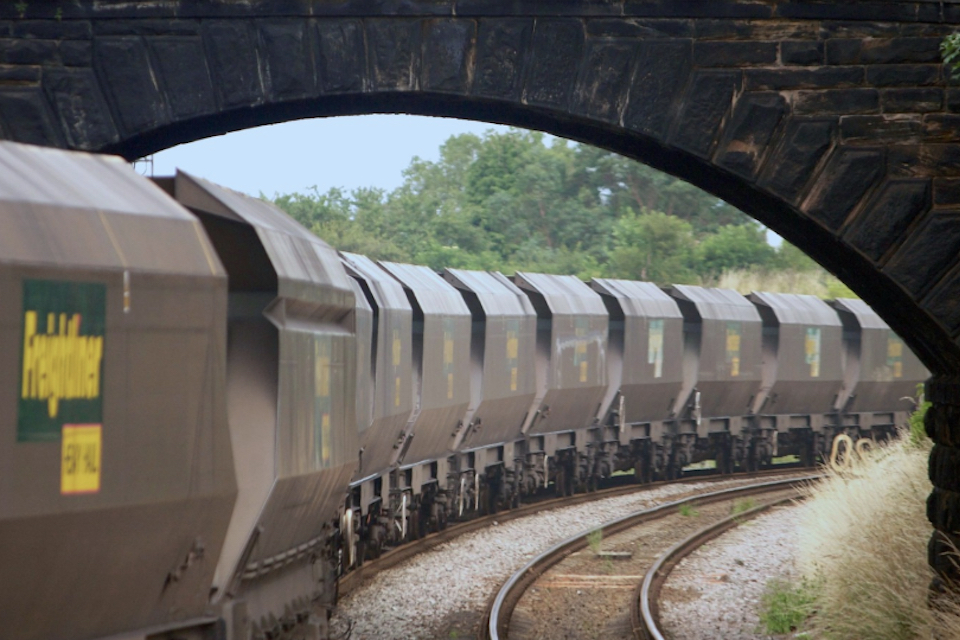HS2 means at least 24 more freight trains a day

The exclusively passenger high-speed railway for Britain will actually generate around 24 freight trains daily for construction, and already has two hubs named.
As the biggest civil-engineering and infrastructure project in Europe, HS2 is not without controversy. The subject of protests and court cases, an even a very public enquiry into its cost benefits and whole viability, the line was given the final green light – a government stamped permission to proceed just last month. This week, the company made a significant entering decision, opting for concrete slab track, and inviting tenders of interest in providing this critical aspect of the railway.
Taking the hot seat
When Ben Goodwin, communications manager for the project, sat down to face an international audience of rail professionals at the RailFreight Webinar UK – held online last Friday – it is fair to say the seat was at very least quite warm.
“HS2 is an entirely new railway, but it is not isolated from nor detached from the rest of the national network”, he said. “Whatever else we may debate about the purpose and benefits of HS2, one thing is clear – it will deliver new, badly needed capacity to the British railway network. Capacity that will benefit all rail traffic, and very much facilitate freight around the UK”.
30,000 workers in construction phase
When questioned further, Goodwin was able to reveal that HS2 will in fact have a direct impact on freight traffic, long before passenger services run. “The passenger-only credentials of HS2 have been clear from the beginning of the project”, he said. “However this is a huge civil engineering project, and rail freight will, to a very large extent facilitate that project”.

At peak construction, HS2 expects there to be around 30,000 people working on the line. Goodwin emphasises how important he feels that is for the strength of the British economy, but also how the work they generate will be handled by HS2. “The HS2 rail freight hub in west London, at Willesden, will generate 16 trains a day. Many of them dealing with aggregates and spoil from tunnel works and regeneration around the HS2 site”.
Freight always part of the project
The construction plans call for more than 6m tonnes moved by rail. Goodwin says that will eliminate 300,000 lorry movements. “Our Staffordshire hub, at Stone, will generate another eight trains daily. Serious development has been going on for ten years already, and freight has always been part of the HS2 project. Now that we are talking more about a low-carbon economy, rail freight has become even more important to the public agenda”.

Goodwin argued that passenger services have always been the major talking point. “People have hitherto seen HS2 as a stand alone, but we need to think about HS2 as being integrated into the existing network. We need to link up with upgrading the existing railway. HS2 delivers capacity increases in ways that upgrading the existing railway does not, but it needs to be in concert with other developments too”.
Public wants more rail freight
Goodwin and his colleagues have held a series of presentations to the rail freight industry. The Campaign for Better Transport, a body more readily accosted with passenger transport, nevertheless said two thirds of the public want more freight on rail.
HS2 could deliver up to 20 paths a day on the busy West Coast Main Line for just that purpose. It is up to the industry to make sure those paths are allocated accordingly, because the decisions made now will last for a very long time. “The last railway lasted 150years”, Goodwin concluded. “This one has to last at least as long”.
Watch again
If you were not able to attend, you can download and watch the RailFreight Webinar UK webinar here.
You just read one of our premium articles free of charge
Want full access? Take advantage of our exclusive offer





